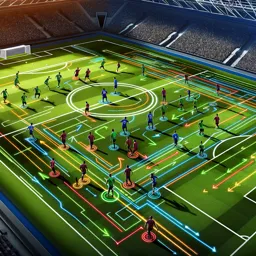Introduction
Tennis is not just a test of physical skill and endurance, but also a challenge that pushes your mental limits. Whether you’re playing for fun or competing at a high level, success on the tennis court often comes down to your ability to stay calm, focused, and confident. In this article, we explore the crucial mental aspects that set strong tennis players apart and provide actionable tips to develop your own mental game.
Why the Mental Game Matters in Tennis
You may have powerful strokes and lightning-fast footwork, but without mental fortitude, it’s easy to lose your edge. Tennis is a unique sport where players often have to self-regulate emotions and refocus quickly after every point. Managing pressure, handling setbacks, and keeping a positive mindset are skills every tennis player must develop.
Key Components of a Strong Tennis Mindset
- Focus: Maintaining concentration point after point, even in long matches, is vital. Distractions—both internal and external—can quickly derail your rhythm.
- Confidence: Believing in your abilities fuels better decisions and more assertive play, especially under pressure.
- Resilience: Bouncing back from errors, tough losses, or unexpected situations is essential to long-term improvement and enjoyment of the game.
Tips to Improve Your Tennis Mindset
- Practice Mindfulness: Simple breathing exercises before and during matches can help ground you and reduce nerves. Try focusing on your breath for a few moments between points.
- Set Process Goals: Instead of only focusing on winning, set small, achievable goals like “get 70% of first serves in” or “stay calm after each point.” This helps you concentrate on aspects you can control.
- Positive Self-Talk: Replace negative thoughts like “I always miss this shot” with affirmations such as “I am improving every day.” Encourage yourself as you would encourage a friend.
- Develop a Pre-Serve Routine: Establishing a consistent ritual before serving or returning helps center your mind and signal readiness to yourself.
- Embrace Mistakes: Instead of dwelling on errors, view them as learning opportunities. Mentally note what went wrong, then let it go and focus on the next point.
Coping with Match Pressure
Matches can bring out nerves no matter the level of play. To handle pressure:
- Slow things down: Step back, take a deep breath, and reset.
- Visualize success: Picture yourself executing shots with confidence.
- Stay present: Avoid thinking about the outcome; play one point at a time.
Conclusion
The mental side of tennis is just as important as the physical. By training your mind as diligently as you practice your backhand or serve, you’ll find yourself playing better, enjoying the game more, and achieving your goals on the court. Remember—to be a winner in tennis, nurture both your body and your mind!
































